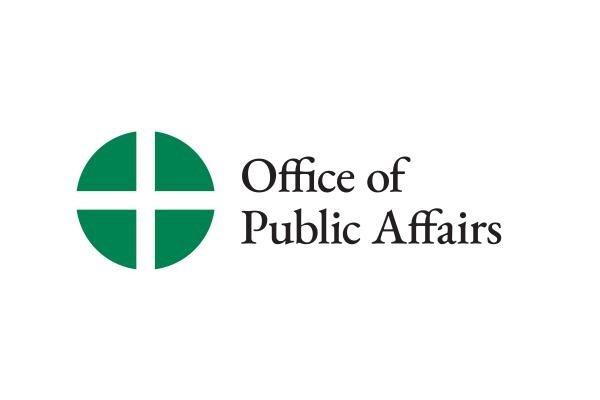United Methodist-Catholic Dialogue Discusses Understanding of Church, Relationship to Each Other
WASHINGTON (January 13, 2003) -- The United Methodist Catholic Dialogue met December 9-11, 2002 at St. Paul's College, Washington, DC. This was the fourth meeting on the theme The Church in Each Place and in All Places.
WASHINGTON (January 13, 2003) -- The United Methodist Catholic Dialogue met December 9-11, 2002 at St. Paul's College, Washington, DC. This was the fourth meeting on the theme The Church in Each Place and in All Places. Both of these churches are members of a world wide communion, see their mission as world wide and gather their parishes and local congregations into regional structures. However, there are significant differences in how United Methodists and Catholics understand the universal church and their relationship to it and to one another. For both churches the basic grouping is a regional communion of local congregations, for the Catholics a diocese and for Methodists an Annual Conference, which is both a meeting and an area in which a bishop serves. However, both churches understand these "local churches" differently in both mission and sacramental understanding. Methodists generally consider the congregation as the "local church."
This meeting of the dialogue focused on the nature of the local church in Catholic understanding, with a paper from Sister Tracey Sharp, and one on the Relationship of the Annual Conference to the Local Congregation by Rev. Alexis Kemmler. The discussions not only allowed the scholars to explore how the two churches understand local church and are structured. It also engendered discussion of how mission is empowered in each church, and the role of Eucharist and worship in the life of the congregation.
Papers were presented on the nature of the Church from the two perspectives. Bishop Walter Klaiber of Frankfurt Germany presented a paper "Being a Global Church: History, Reality and Theology of the Global Nature of the United Methodist Church." This paper surveyed the discussions of the last decade, among United Methodists, on the nature of the Church and on how best to adapt its structures to the increasing membership of the Church beyond the borders of the United States. Many Methodist churches, for example in Latin America, have become independent, but related churches in the Methodist family. Others, like some in Africa, the Philippines and Europe are full members of the United Methodist Church, giving it a much more diverse membership than its United States origins.
A paper was given on "Catholic Teaching on Membership in the Body of Christ," by Dr. Richard Gaillardetz, University of Toledo. While the Catholic Church acknowledges its real, if yet imperfect, communion with the United Methodist Church and other churches, it also recognizes that the Church of Christ subsists in the Catholic Church. There was a rich discussion of the difference between the objective possession of the means of grace claimed by the Catholic Church in their fullness, and the ecclesial vitality possessed – sometimes more fully – by other Christian churches, as one can experience in some United Methodist congregations. The shift in the second Vatican Council (1962-1965) from the simple identification of the universal Church with the Catholic Church to the recognition of ecclesial reality beyond the Catholic Church, was explored and clarified for the members of the dialogue.
There was also extended and fruitful discussion of differences in the understanding of the "universal church," affirmed as an article of faith equally by Catholics and Methodists, but defined differently in the two traditions. The meeting was suffused with an advent spirit of prayer and mutual support. The Catholic cochair, Bishop Gerald Barnes of San Bernardino was unable to be present because of health. Plans were made to take up the themes of mission and of the role of the sacraments as constitutive of the Church. The next meeting of the dialogue is planned for Dallas in April.

